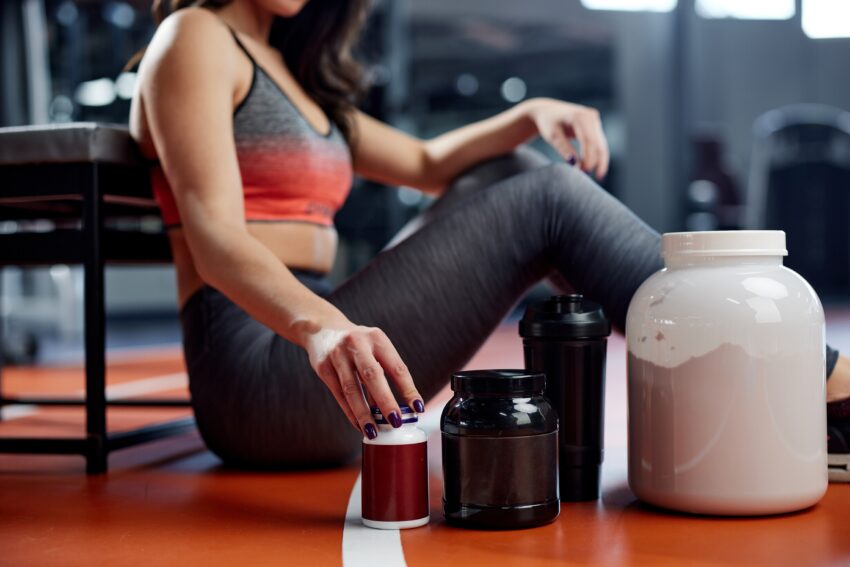Let’s face it, the gym supplement aisle can look like a pharmacy these days. From powders and pills to shakes and bars, it’s packed with products promising big gains.
But let’s cut through the noise and find out what’s really going to give you a bang for your buck. How do you know which supplements are legit, and which are just fluff? Well, buckle up, because we’re diving deep into the world of gym supplements to separate the hype from the real results.
Understanding Protein Powders
Protein powders are the poster child of gym supplements, and they’re everywhere. You’ve got whey, soy, casein, pea—goodness, the list goes on! They all promise to help build muscle, aid recovery, and maybe even make you a morning person (okay, maybe not that last one). But what’s the scoop on protein powder? Let’s break it down.
First off, protein is a building block for muscle. No news there. After a tough workout, your muscles are like, “Hey, we need some help down here!” and protein swoops in to repair and grow those muscles. Now, not all protein powders are created equal. Whey protein is a big hit because it’s absorbed quickly, making it great right after a workout. Casein, on the other hand, takes its sweet time—perfect for a slow release of protein while you sleep.
But here’s the kicker: you don’t always need a protein powder to meet your goals. If you’re eating a well-balanced diet, you might already be getting enough protein. That said, a protein shake can fill the gap if you’re running from the gym to a meeting or you’re just too wiped to whip up a meal. Just don’t let it replace real food all the time. Remember, no supplement beats a solid diet.
Creatine has been around the block a few times, and it’s earned its stripes. This supplement is one of the most researched, and the consensus? It actually does what it says on the tin. Creatine helps your muscles produce energy during heavy lifting or high-intensity exercise. And yes, it can help increase muscle mass, strength, and exercise performance. Not too shabby, right?
Here’s how it works: Creatine pulls water into your muscle cells, beefing them up. This can quickly lead to weight gain, but don’t freak out—it’s mostly water weight initially. Over time, the increased water content in your muscles helps improve muscle fiber growth. This means real gains as long as you’re putting in the work at the gym.
However, creatine isn’t for everyone. If you’re not training hard, its extra boost might not be necessary. Plus, it’s important to stay hydrated. Because creatine pulls water into your muscles, you must drink plenty of water to avoid dehydration. So, if you’re considering creatine, consider your training needs and hydration habits.
BCAAs: Beneficial or Just Buzz?
Branch Chain Amino Acids (BCAAs) are another heavy hitter
in the supplement world. They’re like the VIPs of the amino acid world, and they play a big role in building and repairing muscles. The big three—leucine, isoleucine, and valine—are particularly crucial. They’re supposed to reduce muscle soreness, speed up recovery, and even preserve muscle during calorie-deficit diets.
That sounds great, but here’s the catch: If you’re already eating enough high-quality protein, you’re likely getting plenty of these amino acids. Yep, that’s right—BCAAs are found in any good protein source, like chicken, beef, eggs, and protein powders. So, unless you’re training super hard or not getting enough protein in your diet, BCAAs might just be an extra expense your body doesn’t need.
Moreover, there isn’t enough research yet. Some studies show benefits, while others find no difference at all. So, before you jump on the BCAA bandwagon, take a good look at your diet and your training regimen. It might just be that tweaking your meal plan could give you the same benefits without the extra cost.
Sorting out which gym supplements work can be a workout in itself! Remember, no supplement can replace a balanced diet, hard work, and dedication. Protein powders, creatine, and BCAAs can have their place, but they’re not magic bullets. Before supplementing, consider your dietary needs, your fitness goals, and your budget. Ultimately, real food and workouts are your best bets for real results. So, keep it real, and read artcile at The Jerusalem Post to learn more about other powerful pre-workout supplements you can consider for an intense boost in energy!


